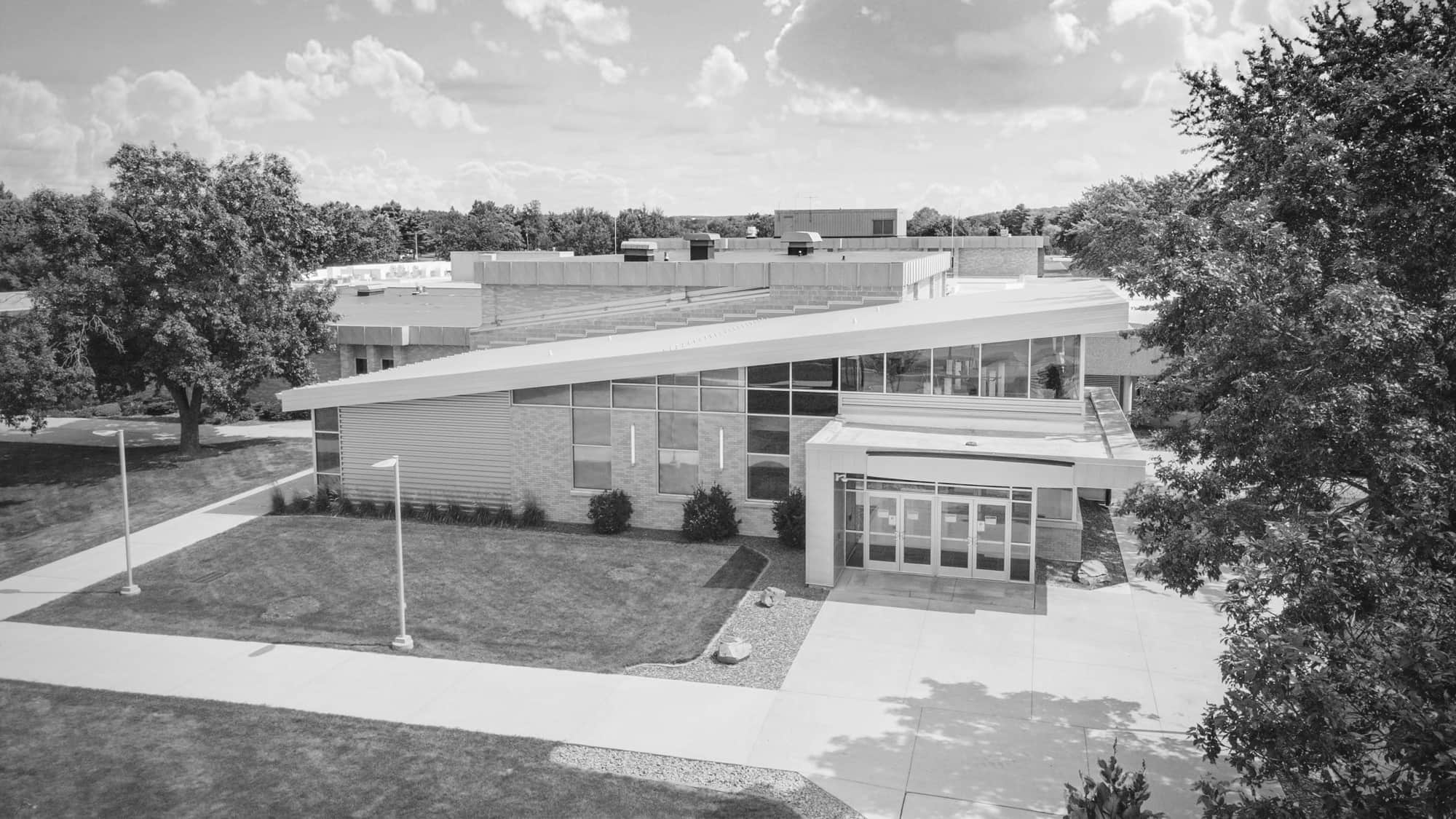Manufacturing Technician
32 Credit Technical DiplomaProgram Description
The Manufacturing Technician Technical Diploma program prepares learners for a variety of entry-level careers in manufacturing.
Prepares learners with foundational skills and knowledge in manufacturing, primarily in both Machining and Welding. Learners will focus on both basic Manual and CNC machining practices, and gain a work-ready foundation in Gas Metal Arc Welding (GMAW). Other skills developed include print reading for both disciplines, metallurgy, precision inspection, a general understanding of hot-work fabrication processes, and lean manufacturing principles.
Completers of NTC's Basic Machining and GMAW Technical Diplomas can earn this diploma by completing five credits of additional coursework.
Please note: This program is subject to the Clock-to-Credit Hour Conversion and some courses listed will not be eligible for full financial aid funding based on the program’s credit hours.
Found in These Career Fields:
Approximate Program Cost
Books & Supplies: $1,083
Starting Salary
Financial Aid
Availability
Courses for this program may be available at a variety of campus locations through multiple modes of delivery if you meet the admission requirements and prerequisites.
* Campus and online availability of courses and programs may be subject to change.
Outcomes
Graduates will be able to…
- Demonstrate good work ethic and teamwork
- Execute principles of weldment inspection and procedures
- Interpret welding prints, material specifications and procedures
- Set up, operate and maintain common cutting processes to industrial standards
- Apply accepted principles in using welding-related tools and fabrication equipment
- Set up, operate and maintain common welding machines and equipment to industrial standards
- Use most current guidelines and safety precautions in all welding laboratory activities
- Machine basic piece parts on manual machine tools
- Inspect parts to ensure parts meet specifications
- Perform basic set-up operations on commonly used machine tools
Courses
The Manufacturing Technician Technical Diploma is a 32 Credit program. The following is a typical semester breakdown of the courses within the program.
Please note: This program is subject to the Clock-to-Credit Hour Conversion and some courses listed will not be eligible for full financial aid funding based on the program’s credit hours.
* College 101 (10-890-165) is not part of the program credit requirements but is a College Requirement for graduation that must be passed with a “C” or better.
Credit for Prior Learning Available
View All Detailed Course Information
Cost of Attendance
2024–2025 Estimated Academic Year Budgeted Cost of Attendance
The estimated Cost of Attendance (COA) is a budget that includes categories of expenses that a student can expect to incur while attending college. The COA does not reflect actual charges. It is an average based on the estimated living costs typical of our region. In determining the cost of attendance, Northcentral Technical College uses the budget established by the Wisconsin Technical College System (WTCS) Financial Aid Budget Work Group. This budget is used to determine financial need for all students who apply for financial aid. A student's cost of attendance is composed of all educational expenses that can be included for financial aid purposes that a student may accrue while pursuing their education for the year (or semester, if enrolled less than a year). A student's financial aid cannot exceed their cost of attendance. Schools are required to provide a fuller picture of what it may cost students to pursue their degree, not just what they will owe in tuition/fees and books/supplies.
| Expenses | Student Living With Parents (Home) | Student Living on Own (Other) | ||
|---|---|---|---|---|
| Full-time Tuition (based on a total of 30 credits, 15 credits fall and 15 credits spring) |
|
|
|
|
| Living Expenses (Housing & Food) | $3,008 | $9,147 | ||
| Books / Supplies | $1,465 | $1,465 | ||
| Transportation | $4,017 | $4,017 | ||
| Personal Expenses | $3,608 | $3,608 | ||
| Loan Fees | $85 | $85 | ||
| Total Estimated Cost Of Attendance |
|
|
|
|
* Tuition listed is based on approved rates for the 2024–2025 academic year. Rates are approved each March by the Wisconsin Technical College System Board and estimated budgets are updated at that time.
For the 2024–2025 academic year, the Wisconsin Resident tuition rate is $149.50 per credit and Out-of-State resident tuition is $224.25 per credit.
For the 2024–2025 academic year, Student Fees include: a minimum $5.00 material fee and a $13.15 per credit activity fee. A $4.00 per semester insurance fee will be assessed to students taking at least one course which has a scheduled session on campus.
Students awarded Federal Direct Loan(s) also have an average of the mandatory loan fees automatically added to their COA.
Students with disability-related expenses may contact the Financial Aid Office to have their additional expenses considered. Disability-related expenses include but are not limited to: personal assistance, equipment, and supplies. The Financial Aid Office may potentially include disability expenses in the COA that are not provided by other assisting agencies.
NTC also offers a Net Price Calculator to help estimate costs.
For more information regarding billed tuition and fees visit https://www.ntc.edu/admissions/tuition-fees
We’re happy to answer any questions you may have about how the financial aid process works. Please feel free to reach out for more information.
-
NTC Financial Aid Office
- 715.803.1647
- financialaid@ntc.edu
Additional Information
Clock-to-Credit Hour Conversion
This program is subject to the Clock-to-Credit Hour Conversion and some courses listed will not be eligible for full financial aid funding based on the program’s credit hours.
| Term | Course | Credit Hours | Financial Aid Credit Hours |
|---|---|---|---|
| 1 | COLLEGE 101 | 1 | 1 |
| 1 | INTRODUCTION TO MACHINE SHOP | 2 | 1.8 |
| 1 | THINK CRITICALLY & CREATIVELY | 3 | 1.8 |
| 1 | PRINT READING FOR THE MACHINE TRADES 1 | 2 | 2 |
| 1 | PRECISION INSPECTION | 1 | 1 |
| 1 | MACHINE TOOL PROCESSES 1 | 3 | 3 |
| 1 | MACHINE TOOL PROCESSES 2 | 5 | 5 |
| 2 | INTRODUCTION TO WELDING | 1 | .9 |
| 2 | WELD INSPECTION & TESTING | 1 | .9 |
| 2 | WELDING SAFETY | 1 | .9 |
| 2 | THERMAL CUTTING | 1 | .9 |
| 2 | WELD PRINT READING 1: BASIC VIEWS AND DIMENSIONS | 1 | .9 |
| 2 | WELD PRINT READING 2: OTHER VIEWS AND SYMBOLS | 1 | .9 |
| 2 | GAS METAL ARC WELDING 1: SHORT CIRCUIT TRANSFER (HORIZONTAL) | 1 | .9 |
| 2 | GAS METAL ARC WELDING 2: SHORT CIRCUIT TRANSFER (VERTICAL AND OVERHEAD) | 1 | 1 |
| 2 | GAS METAL ARC WELDING 3: SPRAY TRANSFER | 1 | 1 |
| 2 | 2D MECHANICAL CAD | 1 | 1 |
| 2 | LEAN MANUFACTURING FUNDAMENTALS | 2 | 1.2 |
| 2 | APPLIED MATHEMATICS 1 | 2 | 2 |
For more information, please refer to our Financial Aid Policies.
Admissions Process
Our application process takes just a few minutes to complete, but we want to make sure you have the things you’ll need on hand to complete the application. We’re here to help if you have any questions while submitting your application.
Fill out our application
The application can be submitted online and takes just a few minutes to complete. There is no fee to apply.
Apply NowWhat’s Next?
We’ll review your application and let you know if we need anything else. If you’re all set, your acceptance letter will be emailed to you.

